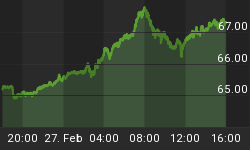Washington’s move to ban Iranians from U.S. trade and investment visas has generated plenty of headlines, but the move is largely meaningless and should not be considered an intensification of the confrontation. On Thursday, the U.S. Citizenship and Immigration Services (USCIS) announced that E-1 and E-2 trade and investment visas would no longer be issued to Iranian nationals as a result of the termination in October 2018 of a treaty of amity with Iran.
The E-1 and E-2 classifications are non-immigrant visas that grant holders entry into the United States to engage in international trade or invest a “substantial amount of capital” into a U.S. business.
“Due to the termination of the treaty, USCIS will send Notices of Intent to Deny to affected applicants who filed applications after the Department of State’s Oct. 3, 2018, announcement. Iranians currently holding and properly maintaining E-1 or E-2 status may remain in the U.S. until their current status expires,” USCIS said. However, they will not be able to extend that status.
While the announcement may sound like another big policy move on Washington’s part, against Iran, the reality is that it will have minimal impact, if any.
In 2018, only one Iranian was issued an E-2, compared to 20 in 2017.
Iranians were already effectively barred from these visas, removing any relevance from announcements of a ban on E-1 and E-2 visas.
“Due to the severe restrictions on the transfer of funds from Iran as a result of sanctions, it has been very difficult for Iranians to obtain non-immigrant investor visas in the E-2 or in the permanent residence category of EB-5,” East Lansing, Michigan-based business immigration attorney Amy Maldonado told SafeHaven.com
“All of these categories require proof of lawful source of funds,” Maldonado said.
Related: How The Trade War Ceasefire Will Impact The Energy Industry
With only 21 Iranian nationals having been issued E-2 visas in the past two years, and with the amount of “substantial” capital being undefined, but in some cases limited to $100,000, the foreign investment loss to American businesses is minimal at best.
Even prior to sanctions, Iranian nationals were not clamoring for E-2 visas. In 2016, no E-1 visas were issued to Iranians, and only 15 E-2 visas were issued, according to government data. In 2015, 25 E-2 visas were issued to Iranians.
Washington made a second announcement this week when it slapped more sanctions on targets connected to an alleged Iranian oil smuggling network.
The U.S. Treasury Department slapped sanctions on four companies “accused of purchasing Iranian oil and petrochemical products in violation of U.S. sanctions”. Two of the companies are based in Hong Kong, the third in Shanghai and the fourth in Dubai. The Treasury Department says the four aided the Iranian state-owned oil company in the export of “millions of dollars worth of petroleum products”.
“Iran’s petrochemical and petroleum sectors are primary sources of funding for the Iranian regime’s global terrorist activities and enable its persistent use of violence against its own people,” Treasury Secretary Steven Mnuchin said in a statement.
Neither move, however, represents an escalation of the confrontation between the United States and Iran in the aftermath of the U.S. assassination of a key Iranian general on Iraqi soil following Iranian-sponsored Hezbollah attacks on U.S. targets in Iraq. The markets have already decided there will be no major escalation, and the situation has now reverted to small jabs, such as visa announcements and additional, targeted sanctions.
By Fred Dunkley for Safehaven.com
More Top Reads From Safehaven.com:
















